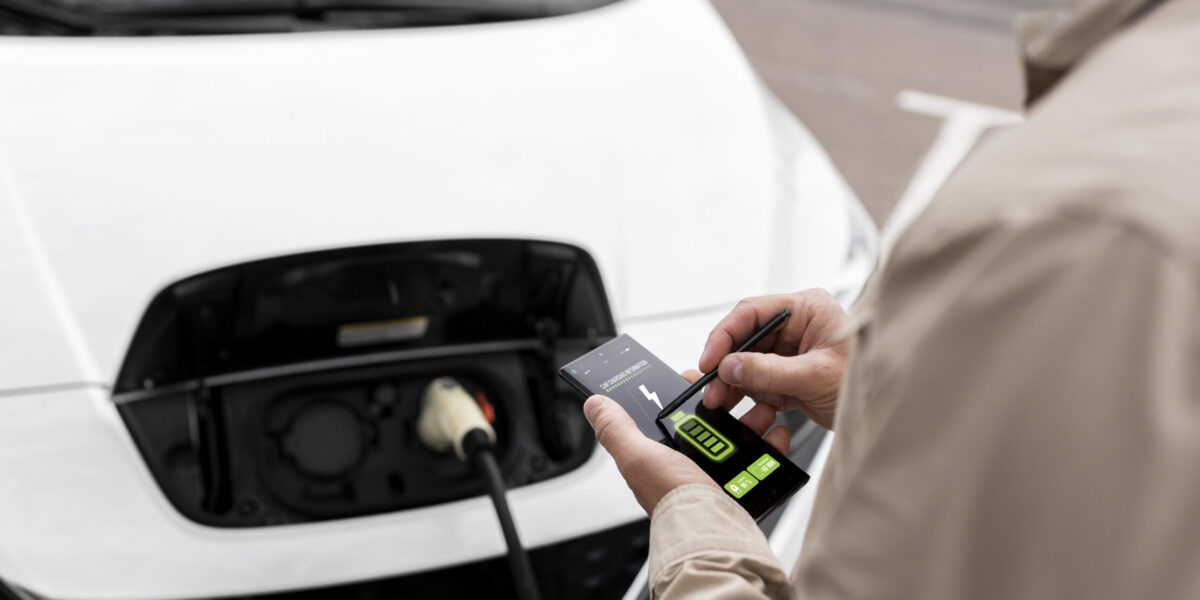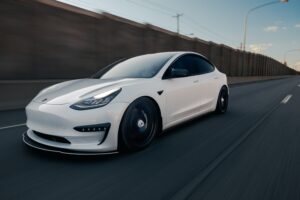In recent years, the automotive landscape has witnessed a remarkable shift towards sustainability, with electric vehicles (EVs) leading the charge. According to the International Energy Agency, the global electric car fleet exceeded 10 million in 2020, marking a significant milestone in the adoption of cleaner transportation. This surge in popularity can be attributed to various factors that go beyond mere environmental considerations.
The big question now is, why are so many individuals caught by the trend of electric cars? Is there really a bright future for electric vehicles? If you’re one of the people interested in these questions, come on and let’s find out as we dive deeper into understanding more about electric vehicles.
What is an Electric Vehicle?
Electric vehicles (EV) or electric cars represent a revolutionary paradigm in the automotive industry, reshaping how we perceive and interact with personal transportation. Unlike traditional vehicles relying solely on internal combustion engines powered by petrol or diesel, electric vehicles operate using electric motors and rechargeable electric batteries.
In addition, electric cars operate on a straightforward principle. When you plug an EV into a power source, the battery charges, storing electrical energy. As you drive, the electric motor draws power from the battery, propelling the vehicle. Notably, electric vehicles boast regenerative braking systems that capture and convert kinetic energy back into electrical energy during braking, enhancing overall efficiency.
Types of Electric Vehicles
To help you further understand, here are the different types of electric vehicle models you can find in the market:
- Battery Electric Vehicles (BEVs): BEVs rely solely on electric power stored in their batteries. They produce zero tailpipe emissions, which makes them pure electric vehicles.
- Plug-in Hybrids Electric Vehicles (PHEVs): PHEVs combine an electric motor with an internal combustion engine. They can operate in electric-only mode for shorter distances and switch to the combustion engine for longer trips.
- Hybrid Electric Vehicles (HEVs): While not fully electric, HEVs use a combination of an internal combustion engine and an electric motor. The electric motor assists the engine, improving the fuel efficiency of your vehicle.
Reasons for the Surge of Demand in the Electric Vehicle Market
Now that we understand the basics of electric vehicles, you may have a glimpse of why consumer demand in the auto industry for electric cars keeps on surging. And to continue uncovering that, let’s jump on to what more electric vehicles can bring to the table.
1. Environmental Awareness:
The urgency to address climate change has led to heightened environmental awareness among consumers. Electric cars play a pivotal role in this shift by significantly reducing greenhouse gas emissions, which gas-powered vehicles produce. This not only helps combat air pollution but also aligns with international efforts to achieve carbon neutrality and create a more sustainable future for our planet.
2. Technological Advancements:
The continuous evolution of battery technology is transforming the electric vehicle landscape. Advanced lithium-ion batteries, innovations in solid-state batteries, and research into alternative materials contribute to increased energy density and longer ranges. This technological advancement not only addresses concerns about range anxiety but also pave the way for more efficient and accessible electric cars.
3. Economic Considerations:
Electric vehicles offer compelling economic benefits over their lifespan. With fewer moving parts, EVs require less maintenance than traditional vehicles, resulting in lower servicing costs. Furthermore, the shift from conventional fuels to electricity leads to substantial savings in fuel expenses for car owners. Government incentives and tax credits further sweeten the deal, making electric vehicles an economically viable and attractive choice for consumers.
4. Government Support:
Governments worldwide are actively supporting the electric vehicle market as part of the Inflation Reduction Act through a range of initiatives. These include financial incentives such as tax credits, rebates, and grants, making power electronic vehicles more affordable for a broader demographic. Additionally, policies promoting the development of charging station infrastructure and environmental regulations further reinforce the commitment to sustainable transportation.
5. Shifting Consumer Preferences:
Consumer values are undergoing a significant transformation, with a growing emphasis on sustainability and ethical consumerism. The choice to embrace more electric cars reflects a broader societal shift towards products that align with eco-friendly principles. This shift not only impacts individual choices but also exerts.
6. Charging Infrastructure Development:
The ongoing expansion of charging infrastructure is a critical enabler for widespread electric vehicle adoption. Efforts to establish a network of convenient and accessible charging stations address concerns about range anxiety. As charging becomes more convenient, consumers feel more confident in making the switch to electric vehicles, knowing that charging their vehicles is as seamless as refuelling with traditional fuels.
7. Luxury Segment Appeal:
The luxury electric vehicle segment, like Mercedes-Benz, Tesla, Jaguar, and Audi, caters to consumers seeking a sophisticated driving experience without compromising on environmental responsibility. These vehicles often feature cutting-edge technology, high-end materials, and a commitment to sustainability. The luxury appeal of these electric vehicles goes beyond performance, attracting a discerning audience with an eye for both opulence and ecological consciousness.
8. Future-Focused Innovations:
The prospect of ongoing innovations in electric vehicle technology fuels consumer confidence in the longevity and relevance of their investment. Anticipated advancements include improved battery efficiency, faster charging times, and the development of smart and autonomous features. This future-focused approach reassures consumers that electric vehicles will continue to evolve, ensuring that their choice remains at the forefront of automotive innovation.
Driving Towards a Sustainable Tomorrow
In the midst of a revolutionary shift in the automotive landscape, the escalating demand for electric vehicles signals a promising era of sustainable transportation. Fueled by different reasons, the surge in demand for electric vehicles is reshaping the automotive industry. This confluence of factors not only reflects a conscious choice towards cleaner and greener transportation but also positions electric vehicles as the driving force behind a transformative and sustainable future.
So, if you’re ready to go on a ride but still looking for a new vehicle, we have different car sales ready for you. Browse through our different models of MG electric cars to find your next dream electric car. If you’re seeking more expert tips and ideas, feel free to flick us a message to talk with one of our experts today!




